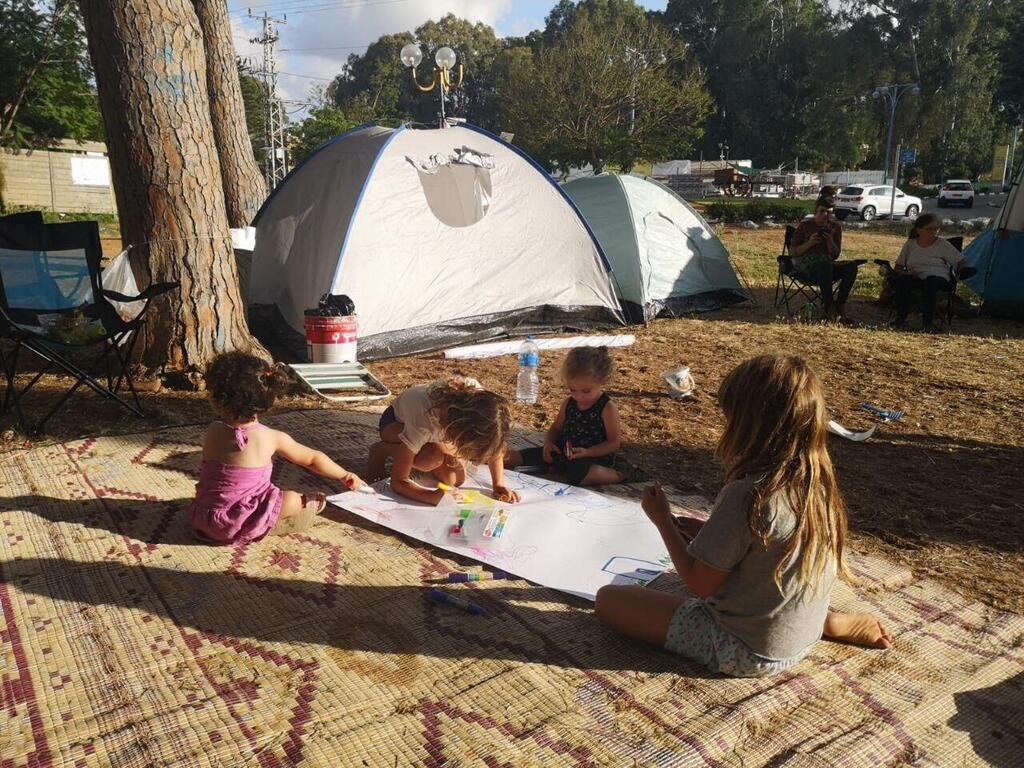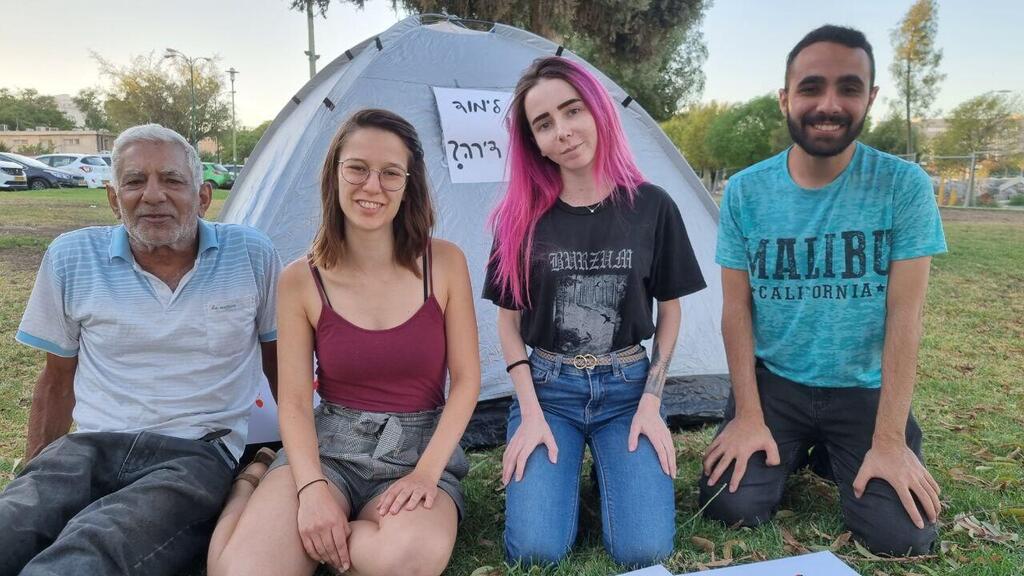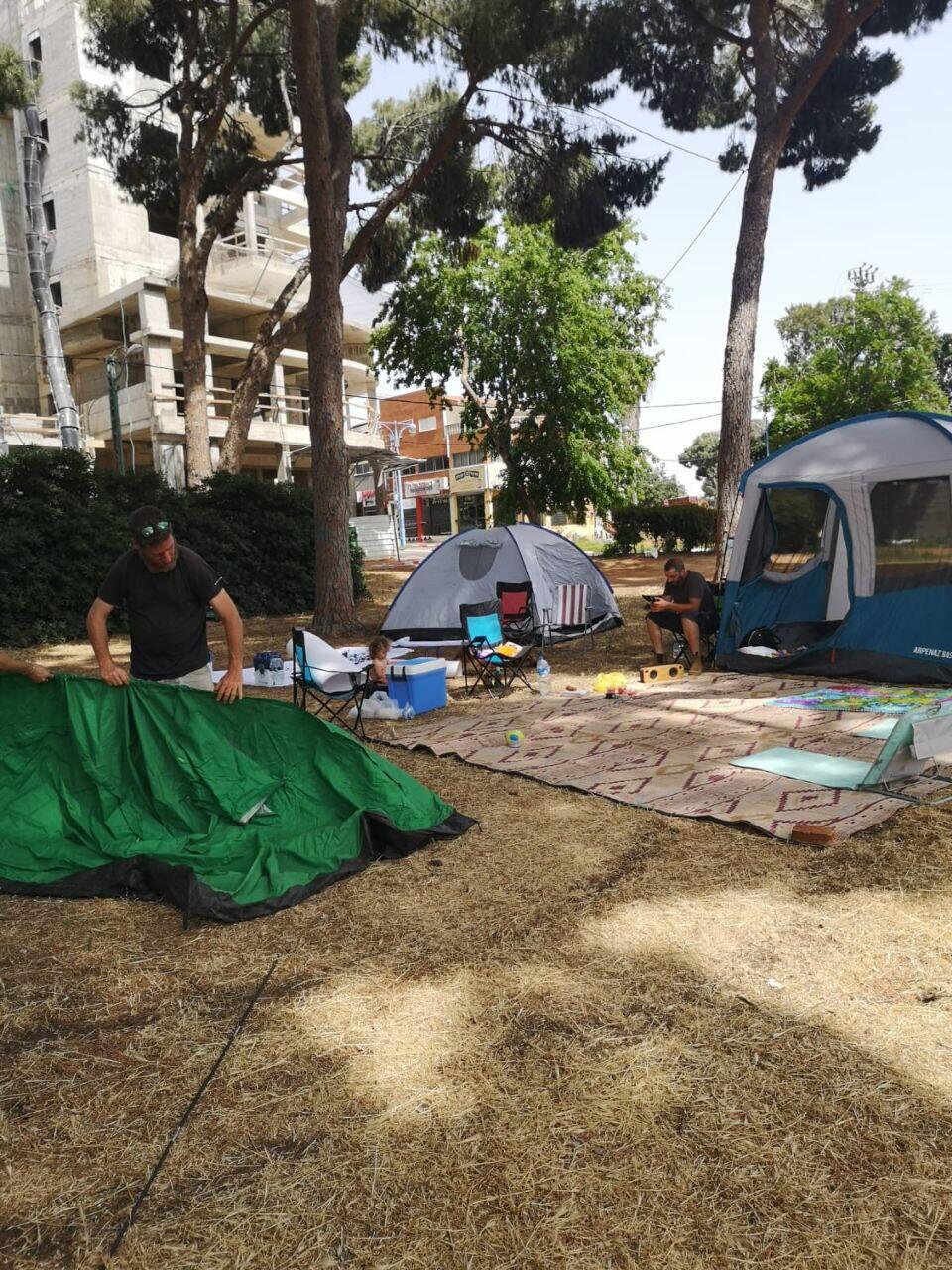Israelis have been pitching tents across the country in protest of relentlessly creeping housing prices, reminiscent of a civil protest that has swept the nation in the summer of 2011.
Three students at Ben Gurion University in Be'er Sheva pitched a tent Tuesday outside the institution's Teacher’s Center, a major protest site during the 2011 demonstrations against the rising cost of living.
Now, the site where thousands once raised a hue and a cry is home to apartment blocks, coffee shops, places of leisure and an ice cream parlor.
The students — Veronica Irayev, Lidor Tubul and Dina Leibman — hope the movement would soon pick up steam.
Veronica, 22, is one of the prominent figures at the protest and shares about her experience as an Olah Chadasha living in Israel.
“I made Aliya with my family. None of us own an apartment, and my mom is still far away from owning one because she can't save money. The only thing we do is work. I don’t go on vacations abroad, not enjoying myself. I work while studying for my degree, and it looks like next year, I’ll pause my studies to work more because this is the situation that I've come to,” she says.
“There's no way I could afford [an apartment] with prices climbing higher and higher. Neither me nor any of my friends. There’s no choice, we have to stand up and do something, or at least try. That’s the biggest step, just so I know I’ve really tried everything. It’s an issue that touches all of us — single parents, couples with and without children, and landlords whose kids won’t be able to own one any time soon. I'm paying rent on a decrepit apartment, and the money goes to waste. Where will we end up? I’m afraid to think my mother will have to move eight times when she’s 70, as I did in my 22 years.”
3 View gallery


Encampment set up in Pardes Hanna in protest against rising housing prices
(Photo: Michal Sahar)
An encampment of about ten tents was also erected by frustrated citizens at the center of the northern town of Pared Hanna.
“We’re protesting against the high cost of living and housing," says Michal Sahar, one of the encampment's organizers. "We’ve had enough. Most protesters usually arrive in the afternoon, because they still need to work to make a living. Some of us come here with our children. I myself come here with my daughter and we spend the night in the tent. I see the protest expanding to more cities like Be'er Sheva and Karmiel. Hopefully, we can finally bring about change.”
The major social protest in 2011 started off with a small group of young men and women setting up an encampment on Tel Aviv’s Rothschild Boulevard on July 14th. The movement gained national attention very quickly and spurred an entire summer of protests that culminated in a massive rally that saw nearly half a million Israelis taking to the streets throughout the country.
Earlier this week, Israel's fragile government presented a plan to sharply boost construction starts and expand a discount scheme in a bid to bridle housing prices.
Under a joint plan by the finance, interior, and construction and housing ministries, Israel aims to start building 280,000 housing units by 2025, or 70,000 on average a year. That compares to around 55,000 a year over the past decade.
Construction and Housing Minister Zeev Elkin noted that the various incentives would mean a loss of as much as NIS 20 billion ($5.89 billion) to the country's lands authority, which allocates Israel's land to developers.
"The plan is not a one-step magic solution," Elkin said at a press conference on Sunday. "(But) we believe (it)... will stabilize Israel's housing market."
Analysts and central bank policymakers have long said the current number of building starts in Israel is too low to meet demand for buyers either looking to invest or for a home.
Along with rock-bottom mortgage interest rates, housing prices have more than doubled since 2010, with a 16% rise over the past year alone.
Rent has also jumped, pricing many out of the market and contributing to rising inflation. Israeli media have reported double-digit gains in rental rates this year.
Data show that a four-room apartment in Israel averages nearly NIS 2.5 million, with prices far higher in Tel Aviv, Israel's financial and cultural capital.



